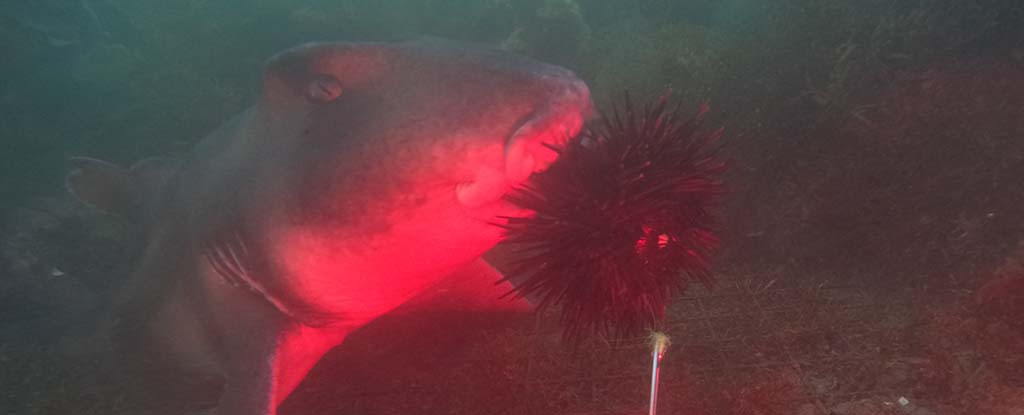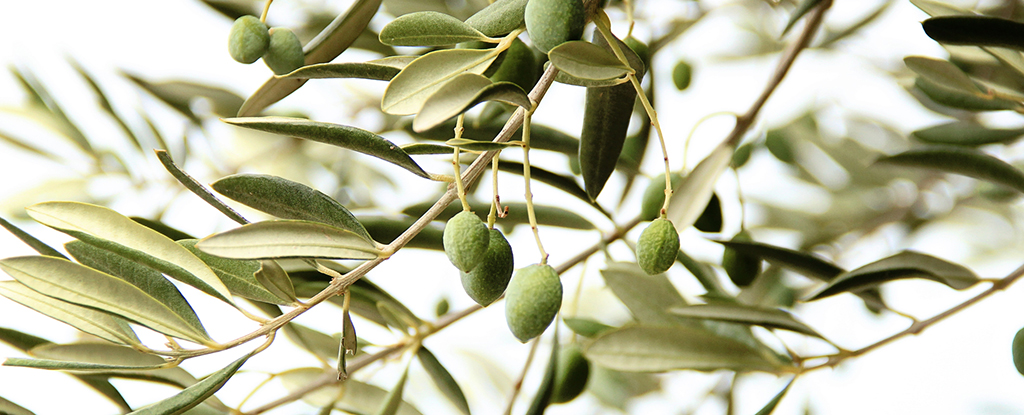Australian scientists have found an unlikely accomplice in the fight against an exploding sea urchin problem that is stripping the continent’s temperate reefs bare.
The East Australian Current is intensifying as a result of global warming, pushing tropical waters and many species that inhabit them further south, while enhancing conditions that encourage other marine life to grow in numbers.
This includes various groups of sea urchin, which by steadily stripping the lush kelp beds of southeast Australia’s temperate reefs have transformed diverse and valuable ecosystems into eerie urchin barrens.
One of the few species thought to prey on urchins is the eastern rock lobster, Sagmariasus verreauxi.
We know they eat native short-spined urchins, Heliocidaris erythrogramma, but it’s unclear how involved they are in the fight against the long-spined Centrostephanus rodgersii. So a team led by University of Newcastle ecologist Jeremy Day wanted to find out just how useful of an ally these lobsters are.
frameborder=”0″ allow=”accelerometer; autoplay; clipboard-write; encrypted-media; gyroscope; picture-in-picture; web-share” referrerpolicy=”strict-origin-when-cross-origin” allowfullscreen>
Their experiment off the shores of Wollongong, a town on Australia’s southeast coast, monitored 100 sea urchins (half short-spined, half long-) that were tethered outside a known lobster den – a rocky overhang in the reef, 5 to 8 meters deep, in which the nocturnal lobsters lurk during the day – for 25 nights, recording the ensuing carnage with GoPro cameras.
“‘Tethering’ is where urchins are surgically restrained to remain available for predation overnight and to stay within view of our cameras. We used a red-filtered light to film the experiments because invertebrates don’t like the white light spectrum,” says Day.
The footage revealed the lobsters are actually uninterested in long-spined urchins. There is, however, another predator crunching down on them with far more relish.
frameborder=”0″ allow=”accelerometer; autoplay; clipboard-write; encrypted-media; gyroscope; picture-in-picture; web-share” referrerpolicy=”strict-origin-when-cross-origin” allowfullscreen>
“Lobsters are thought to be ‘key’ urchin predators which control urchin abundances while sharks are not typically considered in urchin predator models,” Day says.
“Importantly, sharks easily handle very large sea urchins.”
Crested horn sharks (Heterodontus galeatus) accounted for 82 percent of long-spined urchin kills caught on camera, and just under half of them overall.
They were also willing to chomp on mature urchins more than 12 centimeters (nearly 5 inches) in diameter, which had been thought to be largely exempt from predation. That’s particularly important when it’s the mature urchins causing the most damage.
Port Jackson sharks (Heterodontus portusjacksonii) also contributed their share of long-spined urchin kills.
The lobsters were filmed repeatedly walking past long-spined urchins, and only ate one of the species during the entire experiment, with a diameter of 58 millimeters. It turns out they prefer the native short-spined urchins, which means scientists might be overestimating their role in limiting long-spined urchin numbers.
Until now, there’s been scarce evidence of predators capable of handling very large urchins. The fact that crested horned sharks are up for the challenge makes them a welcome aid in conservation management efforts, and underscores the importance of large predators in maintaining the balance of an ecosystem.
“Long-term efforts to control urchin numbers by ensuring predator numbers have not had the expected effect in NSW despite protections of more than 20 years,” Day says.
“This experiment provides one possible answer, since lobsters seemed generally uninterested in eating urchins, and also adds to the complexity of the model since sharks unexpectedly arose as the predator eating most of the urchins.”
This research is published in Frontiers in Marine Science.





